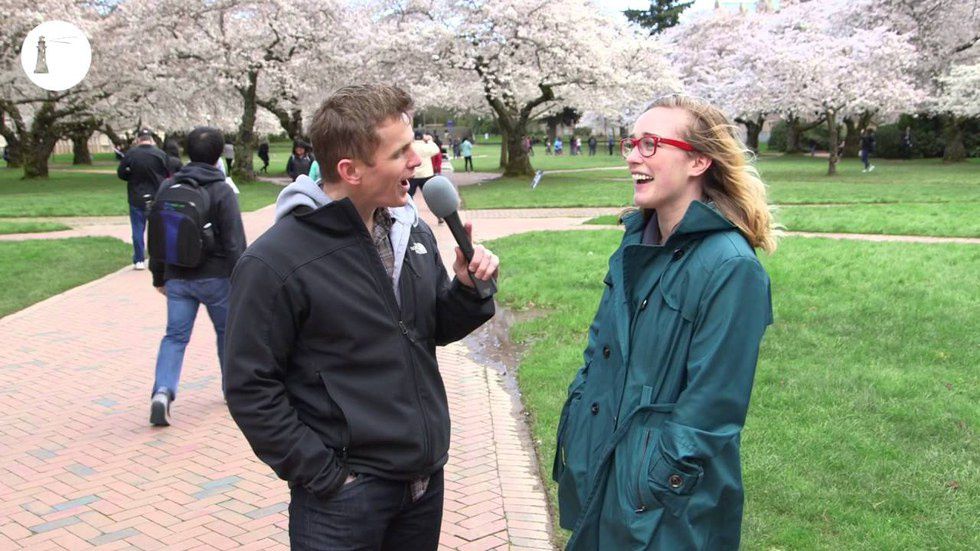A couple weeks back, I wrote an article that showed 5 videos and articles pertaining to this year's election that I found to be interesting. The first video was titled "College Kids Say The Darndest Things". You can (and you should) watch it here.
The summary
For those who were too lazy to click that link, here's the summary. The video was made in light of the conflict in Washington, D.C. surrounding gender-neutral public restrooms. The interviewer, who is a 5-foot-9-inch white male asks several college students a series of questions. He first asks how the college student would respond if he told them he was a woman. Then he asks for their response if he said he was Chinese. The next identity he chooses is a 4-year-old. And finally, he asks their response if he claimed he was 6-foot-5-inches.
Students respond at first by saying that they are fine with his claim, but as the claims become more ridiculous, students become more hesitant to comply; however, they never tell the interviewer he is wrong.
The question is: "It shouldn't be hard to tell a 5-foot-9 white guy that he's not a 6-foot-5 Chinese woman, but clearly it is. Why? What does that say about our culture?"
The response
One of the biggest reasons we might run into these dilemmas of identity issues is forgetting that objective truths are different from subjective truths. A good explanation can be found here, but as a brief summary: objective truths are inherent to the object that is being observed, while subjective truths may only be true for the person making the judgment and not for everyone else. It's a touchy subject, but we need to understand that the physical anatomy of a human, the number of years they have lived, their ethnicity, and their height are objective truths. A person may want to be 6 feet and they may claim to be 6-feet-tall, but it doesn't change the physical fact that they are not 6 feet tall. The same goes for gender identities.
This answers why we have "identity issues", but this doesn't answer why it's so hard to say someone is wrong or what it says about our culture.
I think one of the biggest concerns we might have is not offending someone but of being criticized for telling the truth. We see social media, and we see the harsh comebacks people have for one another. As a result, we have a fear of being called out in that same way. So why is calling someone out for their opinions such an issue? Unfortunately, I believe we've forgotten (or maybe we never knew) how to have a decent conversation in which our opinions differ. We constantly struggle with "agreeing to disagree", and we have trouble gracefully saying "my opinion is different from yours" in a gentle way. It's hard to voice our opinions because we don't know the best way to do it.
I think part of the video assumes that our culture doesn't have a definite definition or opinion to questions pertaining to identity. I believe, however, our culture has definitions and opinions, but we simply fear and lack knowledge in being able to voice them. In case you've been hiding under a rock for the past year, there's a big presidential election coming up. With this significant event, issues and opinions are bound to come up. We need to learn how to voice our opinions, and we need to not call each other out or harshly disagree with others.
The bottom line
The point of this article isn't to talk about the election. The point of this article isn't to criticize social media. The point of this article isn't even to discuss gender identity conflicts.
The point of this article is to call people to have an opinion, voice it, and disagree with one another in a respectful and graceful way.




















